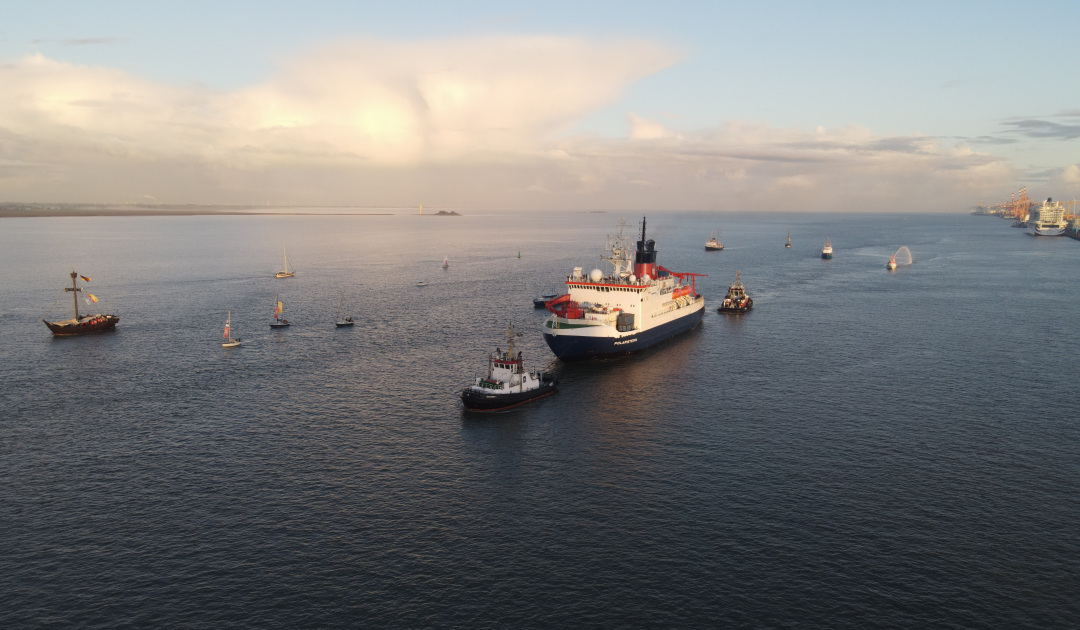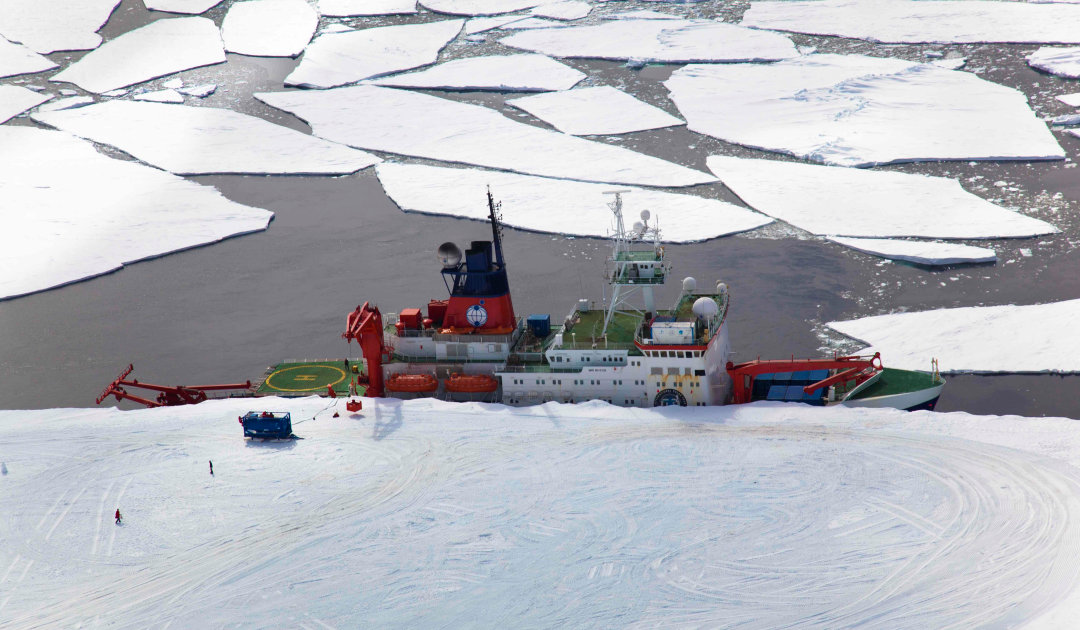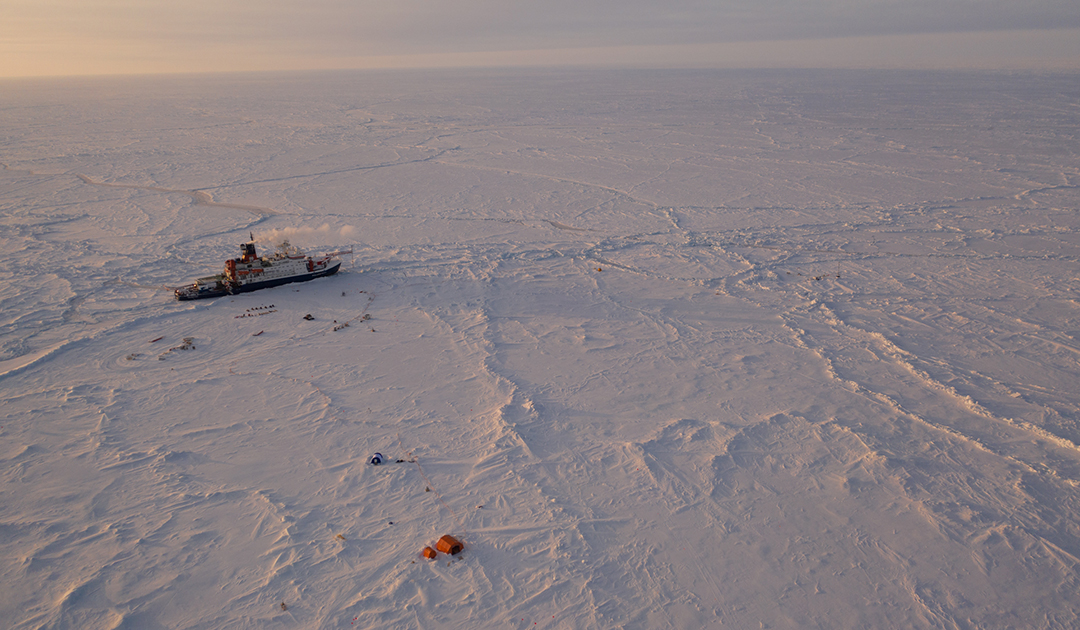
The German research icebreaker Polarstern is probably one of the best-known ships operating in the polar regions. The ship, which has been in service with the Alfred Wegener Institute AWI since 1982, made history with the MOSAiC expedition, when it acted as a floating research station in the Arctic pack ice. But the time of the blue and white icebreaker is slowly running out and the AWI already has plans for the construction of a new icebreaker. Those plans took a big step forward toward reality on Thursday.
The Budget Committee of the German Bundestag gave green lights for additional funding this year in the amount of 2 million euros. This money will be used to launch the tender process for the construction of the successor Polarstern II and finally push ahead with the new building, which had been planned since 2012 and stalled in 2020. Next, the German Federal Ministry of Education and Research BMBF must officially approve the project. AWI, as the operator of the new vessel, has formulated the tender.

For the AWI, the approval of the new funding is a reason to rejoice. AWI Director Professor Dr. Antje Boetius explains in an official statement: “We have experienced a lot of support for our project from regional politics and also from federal politics in the past months and thank all involved very much for thus continuing to commit to the relevance of climate, polar and ocean research in these difficult times. We can only conduct polar and marine research at the highest level with an efficient icebreaker. Therefore, in February 2020, the BMBF declared that it would enable the AWI to carry out the contract award procedure for the construction of the multifunctional icebreaking polar research and supply vessel Polarstern II as the public contracting authority. That promise is now being fulfilled.”



Regarding the requirements for the new vessel, AWI writes that in addition to modern interdisciplinary and sustainable marine and polar research and supply cruises in the Arctic and Antarctic, planned scientific wintering and eventually possible rescue missions in polar waters are also planned. The MOSAiC expedition and the resulting scientific results show that the use of an icebreaker as a base for a wintering expedition is possible with today’s resources and provides new important insights into climate change and its consequences in the polar regions. Use in rescue operations has also taken on greater weight and reality with the projected increase in vessel traffic through Arctic waters. In addition, the AWI sees the future in the field of underwater robotics and environmental sensors and therefore plans to install “extensive new systems” on the new ship, as it writes in a statement.

The plans for the new research icebreaker Polarstern II have been known since 2012. But the procurement process for the new ship was canceled in 2020 by the government at the time because the cost of construction was higher than estimated as recently as 2012. At the time, there was talk of around 500 million euros. But the requirements, especially in the area of operational capability and environmental friendliness / sustainability, had risen sharply since the first plans, making construction more expensive. AWI is also aware of this and is therefore glad that the politicians also realize this. “Last but not least, they are also sending a clear signal for the transformation in maritime infrastructure, as the funding requirements for the construction of Polarstern II have increased significantly due to climate-friendly technologies and innovative elements,” says Professor Dr. Antje Boetius.
“Polarstern II is essential for polar ocean research and basic research on climate change and its consequences.”
Dennis Rohde, Sven-Christian Kindler, Otto Fricke, Members of the German Bundestag
Politicians in the German Bundestag are also very pleased with the Budget Committee’s commitment, as they see the construction of a new icebreaker, which is to meet the latest technical and scientific requirements, as urgent for Germany as a research location. Three MPs told the German news platform n-TV: “With Polarstern II, we want to put one of the most modern and sustainable research vessels in the world on the water, which will test new, innovative technologies and enable pioneering basic research. Polarstern II is essential for polar ocean research and basic research on climate change and its consequences.”
Dr Michael Wenger, PolarJournal
Featured image: Polarstern in the ice, Image: T. Steuer, AWI
More on the topic





